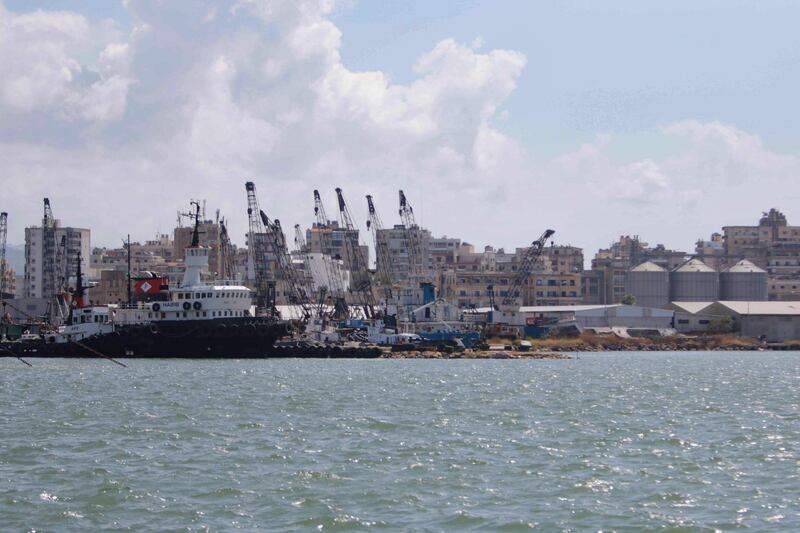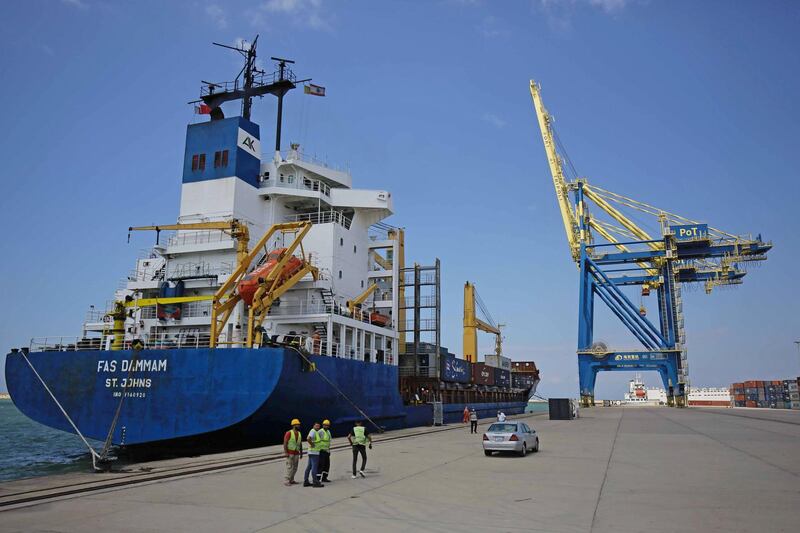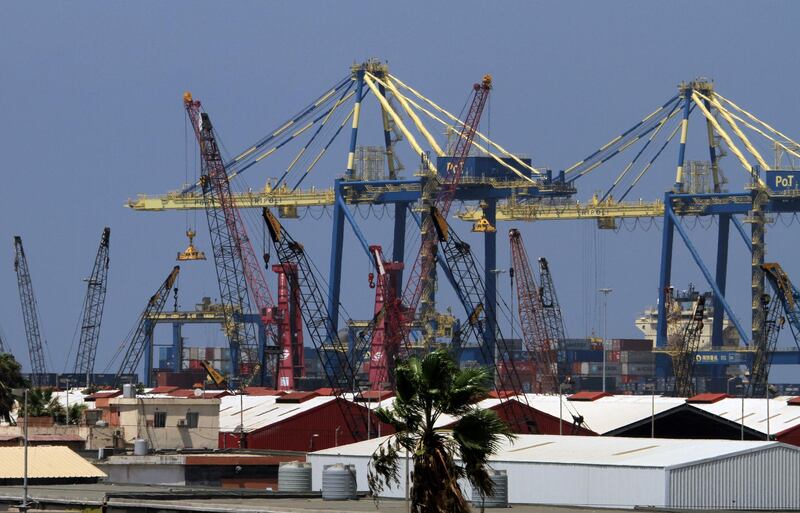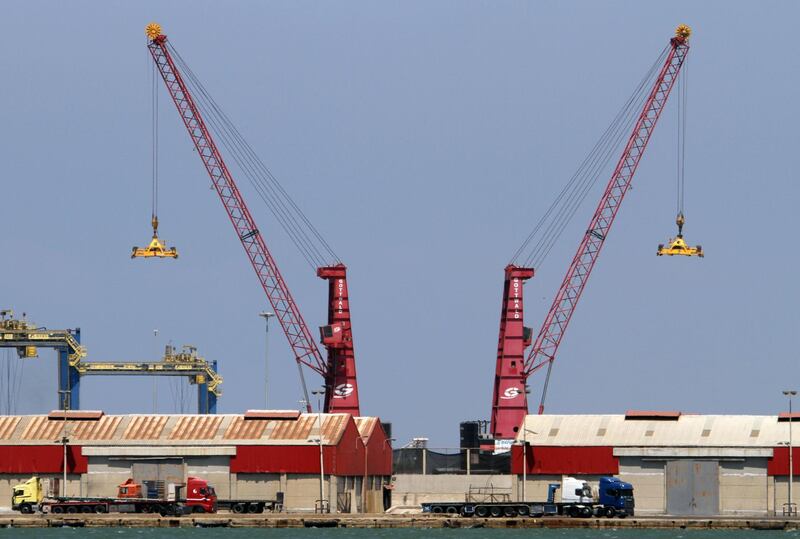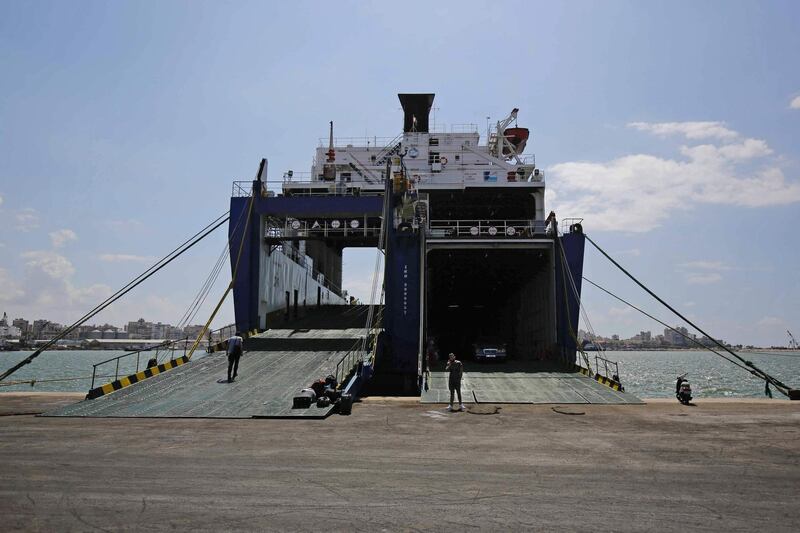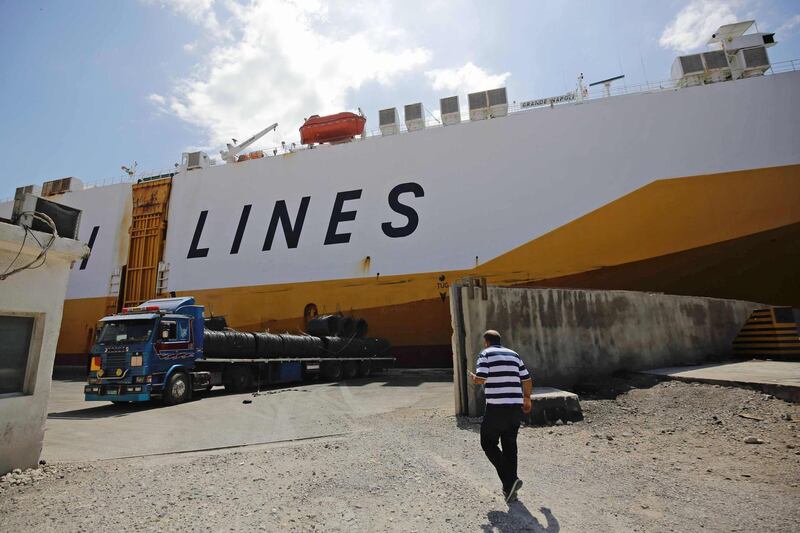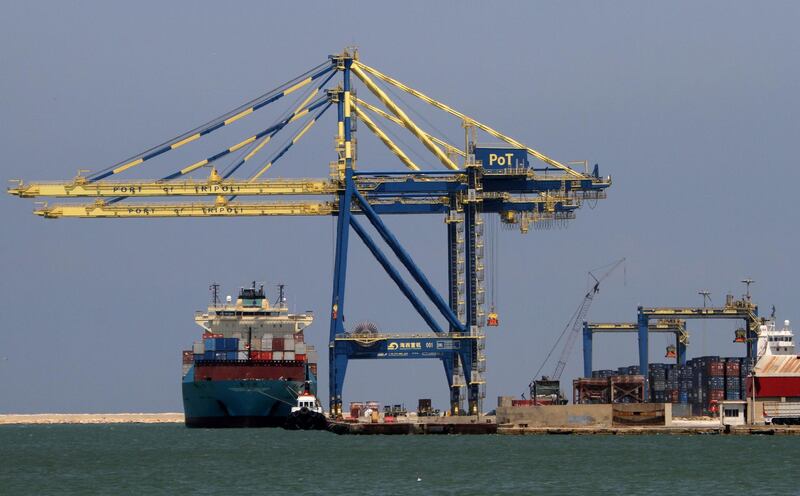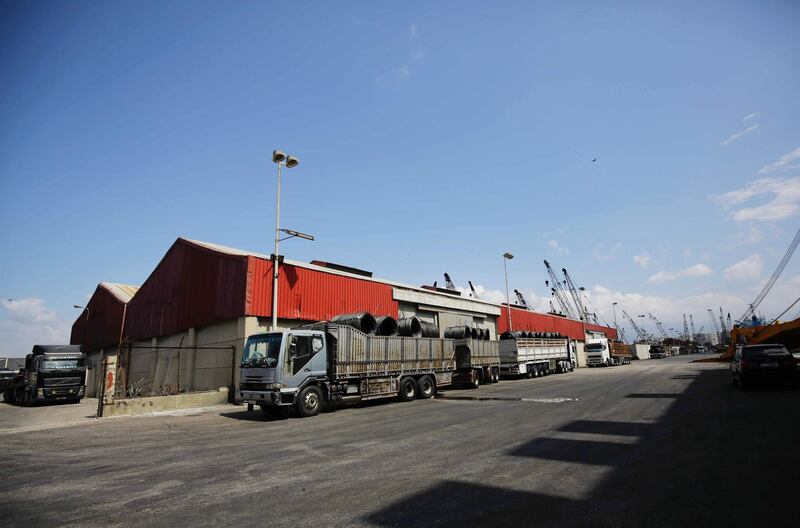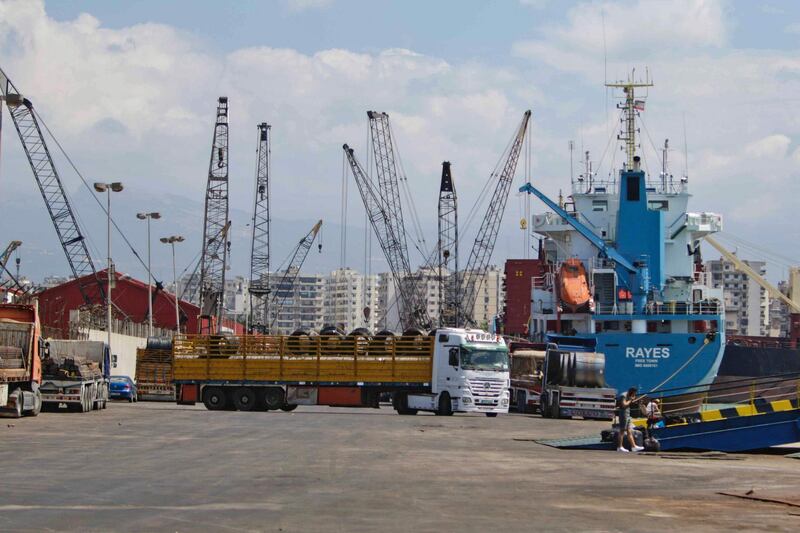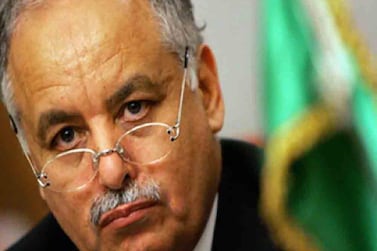Lebanon’s second biggest city, Tripoli, is hoping the tragic explosion in Beirut will have at least one positive effect: more economic activity and jobs in the long-neglected capital of north Lebanon.
For years, Tripoli nurtured hopes that it would become the main gateway of goods for post-war reconstruction in Syria, thanks to its port and proximity to the border.
With water more than 15 metres deep, the Tripoli port can receive bigger ships than the ports in Beirut (14.5 metres) or in Saida (8.5 metres) further south.
But those hopes were crushed by US sanctions against any business involved in Syrian reconstruction.
Tripoli is known for its poverty and religious extremism, although its image has been improved by mass local anti-government protests that swept the country last October, earning it a new nickname, “the bride of the revolution”.
Ahmed Tamer, the director of Tripoli’s port, said business had increased significantly since the Beirut blast on August 4 that destroyed warehouses and the huge grain silos in the capital.
Ships rerouted to Tripoli doubled the port's activity, which was at only 40 per cent of capacity because of the country's economic crisis, Mr Tamer told The National.
But 12 of 16 cranes in Beirut’s port were spared by the blast, so most operations have been able to continue.
The port can receive up to 85 per cent of its usual cargo, as long as it does not need storage, Mr Tamer said.
The other 15 per cent is now unloaded in Tripoli.
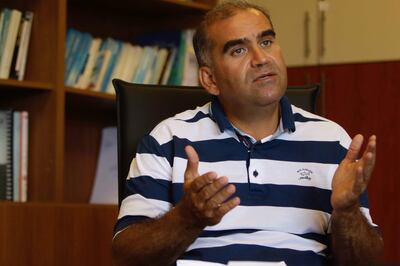
The new director of Beirut port, Bassem Al Qaisi, whose predecessor was arrested as part of the inquiry into the explosion, said on Wednesday that the port was operating normally.
“He knows the situation of Beirut port more than me, but no doubt that he will face logistical problems that will affect the quality of service,” Mr Tamer said.
The National was unable to reach Mr Al Qaisi for comment.
Those who are invested in Tripoli’s port want to seize the opportunity to enhance the city’s role in the country, but say that they are the target of an unfair political campaign.
“The port of Tripoli has all the infrastructure but there is a political war against it,” said Antoine Amatoury, director of the port’s container terminal, which is operated by a private company, Gulftainer Lebanon.
Mr Amatoury accused Iran-backed political parties, Hezbollah and its ally Amal, of having “no interest” in allowing economic activity to grow in Tripoli, a Sunni Muslim stronghold with a small Christian minority.
“We will start a publicity campaign next week to explain that Tripoli port is indirectly headed by Christians to counter social media rumours that we are controlled by Turkey-backed Muslim Brotherhood parties,” said Mr Amatoury, who is a Christian.
Following the publication of this article, Mr Amatouri clarified that he did not intend to target a specific Lebanese political party, but rather a lack of political will to allow for the economic expansion of Tripoli port.
Turkey has been building a network of influence in northern Lebanon, where thousands of people of Turkish origin have been granted dual citizenship, according a Lebanese political source and another at a foreign embassy.
Meanwhile, Beirut’s port is said to be controlled by a several political parties, mainly Amal, that represent Lebanon’s religious groups and jostle for power.
“Political parties who have full access to Beirut port do not have the same access as in Tripoli,” another source said.
“Maybe this is because Tripoli is more homogeneous. It’s dominated by the Sunni Muslim Future Movement, and to a lesser extent, by the Azm movement.”
The Azm movement is led by Tripoli-born billionaire Najib Mikati.
Tripoli’s main asset, as yet untapped, is its special economic zone, an area of 550,000 square metres reclaimed from the sea in 2018.
The zone aims to attract businesses from across the region by offering 100 per cent exemptions on VAT, Customs duties and labour tax.
The head of the zone, Hassan Dennaoui, told The National he hoped to soon receive funding to develop its infrastructure.
The UN Development Programme and the World Bank are backing the zone in its search for support for the first phase of the $267 million (Dh980.6m) project, estimated to cost $18m.
“I believe this would be a joint venture” between a Lebanese and an international company, Mr Dennaoui said.
“Turkish, Chinese, British and UAE companies are very interested."
The economic zone is expected to create 5,000 jobs, and up to 75 per cent of them will be local, he said.
This is particularly important in a city of half a million people with more than 60 per cent unemployment.
A 2018 market analysis predicted a 15 per cent return on investment for private investors in the zone.
But that was based on a 2 per cent rate of inflation, which rocketed to 89 per cent in June as Lebanon sank deeper into its worst economic crisis.
Even outside the port, business owners are hoping to capitalise on Tripoli’s economic potential.
Interior designer Nayef Francis will soon be moving his furniture company to the city, where rents are 50 per cent lower than in Beirut, to cut costs, produce locally and sell online.
Up to 80 per cent of the carpenters and blacksmiths he works with are from Tripoli and have stopped commuting to Beirut as business slows down.
“People are afraid of investing in Tripoli because it’s known to be dangerous and volatile, but everywhere you go in Lebanon there is uncertainty,” said Mr Francis, who was wounded in the August 4 blast.
His former showroom in Beirut, which he vacated in February, was near the port and was destroyed by the explosion.
“In Lebanon, there is no safe zone," Mr Francis said. "You have to take into consideration what is best for your business and Tripoli has all the ingredients for this.
“Tripoli has a huge potential because it is underdeveloped. People there are seeking opportunities.”
Others are more sceptical, given Lebanon's history of politicians putting their own interests first.
“I think we are doomed,” said Sahar Minkara, an activist who opened a cultural cafe in the city in 2008.
“Politicians want misery to be concentrated in Tripoli because this is how you rule a city. People need to be desperate to be manipulated.
Ms Minkara referred to the alleged practice of political parties buying votes for as little as $50.
“I tried to make changes in the city and create a platform for people who share the same values as me – non-sectarianism and liberalism – but we were harassed by religious people and politicians,” she said.
“I’m realistic now. The system is stronger than us.”
